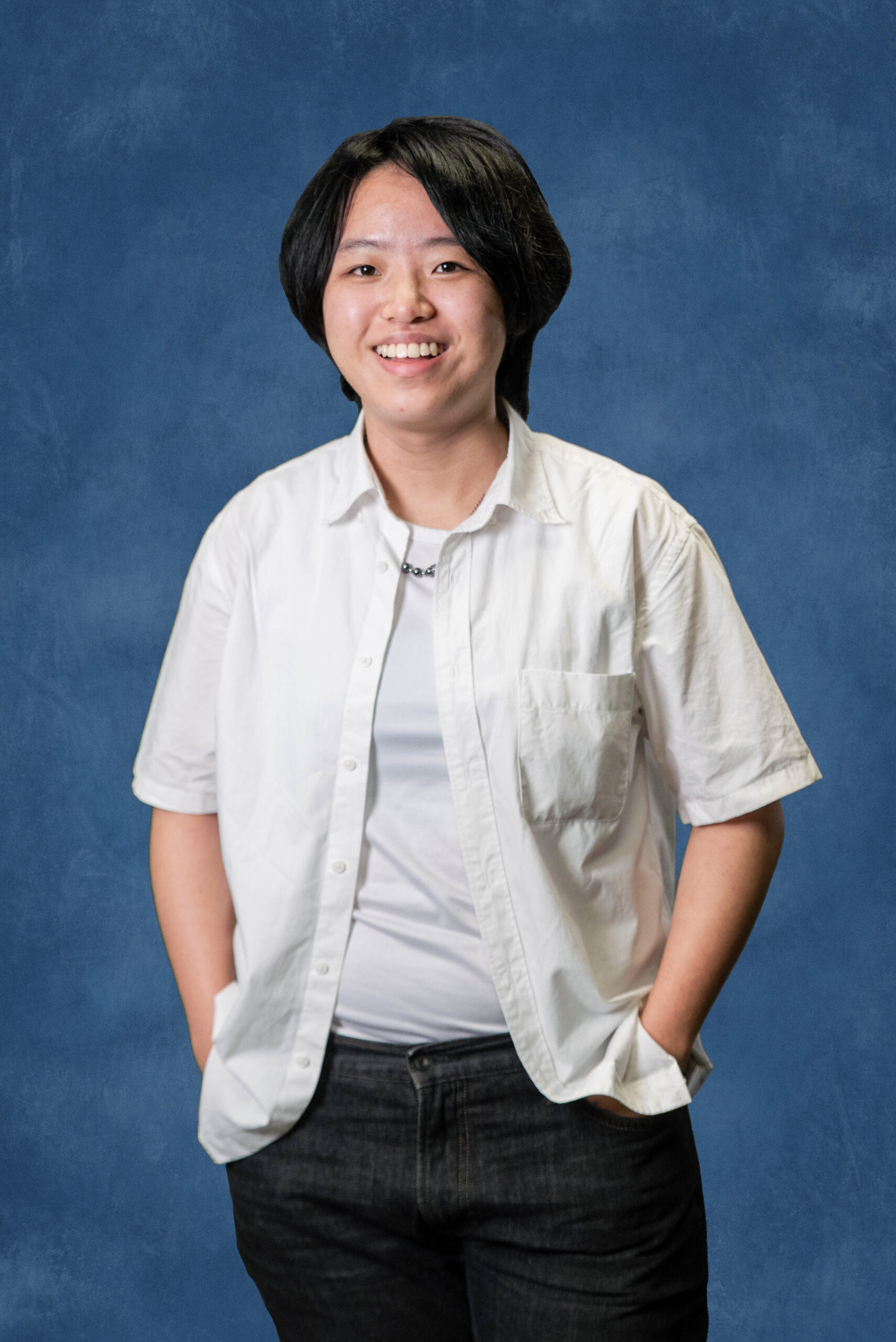Why History?
The Department of History is one of the oldest and yet most vibrant departments in the National University of Singapore. From its genesis as Raffles College from 1929, the Department has continued to grow in strength. Today, we maintain a worldwide reputation for teaching and research excellence, and an impressive track record of producing successful graduates who make their mark in the professional world.
Each year approximately 5,000 undergraduates enroll in a slate of about 50 modules. Our teaching and research expertise lies primarily in the history of Southeast and East Asia, but there is a strong selection of module offerings in European, American, and military history, as well as the history of art, business, religion, science, and technology.


Meet our Head of Department
Associate Professor Wang Jinping is a social-cultural historian of pre-modern China, and holds a PhD. from Yale University (2011). Before joining NUS in 2013, Prof Wang was a postdoctoral fellow in the Department of East Asian Languages and Civilizations at University of Pennsylvania. Her research interests include Chinese history, Chinese religions, regional studies, epigraphic studies, and the Mongol-Yuan and Ming Empires.
Curriculum
Single Major in History (HY) [B.A. (Hons)]
Pass at least 60 units of HY courses or HY-recognised courses which include the following:
- HY1101E
- HY2259 The Craft of History
- a minimum of 36 units at Level-3000 or higher, with a minimum of 20 units at Level-4000 or higher*
- a maximum of 8 units of HY-recognised courses
- a maximum of 4 units at Level-5000 (with department permission)
* Students who wish to read more than 20 units of Level-4000 courses must seek department approval
Second Major in History (HY)
Pass at least 40 units of HY courses or HY-recognised courses which include the following:
- HY1101E
- a minimum of 16 units at Level-3000 or higher
- a maximum of 8 units of HY-recognised courses
Notes:
- Students are allowed to read Level-4000 courses subject to department approval
Minor in History (HY)
Pass at least 20 units of HY or HY-recognised courses, which include the following:
- HY1101E
- a minimum of 8 units at Level-2000
- a minimum of 4 units at Level-3000
- a maximum of 4 units of HY-recognised courses
Notes:
- HY courses include HY cross-listed courses i.e. courses which are cross-listed with HY courses can be used to satisfy the minor requirement.
Minor in Art History (AH)
Pass at least 20 units of AH or AH-recognised courses, which include the following:
- AH2101 Introduction to Art History
- a minimum of 4 units at Level-3000
- a maximum of 4 units of AH-recognised courses
Notes:
- While it is not required, students looking to complete the AH Minor are strongly encouraged to read AH3204 Methods and Approaches to Art History
- While it is not required, students are advised to read AH2202 Modern Art: A Critical Introduction, and AH3201 A History of Contemporary Art, before/ in conjunction with AH3202 Time Traveller: The Curatorial in Southeast Asia
Job Ready
History majors are trained to think critically across a diverse range of sources and perspectives. This experience will help them go on to a variety of different careers, including fields such as teaching and heritage as well as policy and intelligence analysts, bankers, writers, artists, and government administrators. This is achieved through the development of Historical Thinking Skills in each individual student during their career at NUS.
Historical Thinking Skills are the reasoning skills that a student of history will develop through their reading of undergraduate modules at NUS. These skills are varied and interconnected. They mainly involve the identification, comparison, and evaluation of multiple perspectives in order to develop nuanced understandings and conclusions about historical developments and events. A mastery of these skills will lead to an appreciation of chronology and context, comprehension, research, analysis, and interpretation in order to make decisions and develop opinions about not only the past but also contemporary events. Through a variety of exercises, spread throughout various modules, each student will explore the past while also developing these skills, which will prepare them for a variety of careers in our ever-changing world.
Why CHS?
The College of Humanities and Sciences (CHS) is the enhanced undergraduate experience for students of the Faculty of Arts & Social Sciences (FASS) and the Faculty of Science (FOS) at the National University of Singapore.
Scale of Impact
Taps and builds on the research expertise of two of the largest and most established faculties in Singapore.
Deliberate Curriculum Curation
A distinct interdisciplinary approach that emphasises the ability to draw connections, discover links and connect insights across disciplines.
Unparalleled Flexibility
Offers greater choice and unparalleled flexibility to pursue breadth and depth from more than 1,000 modules per academic year.
Testimonials

Lu Yijing
History
Why study History?
History is the interpretation of how, why, and whether or not the past actually happened. Nothing is set in stone; history tells you that the world, everything and everyone in it, is shaped by somebody — including yourself. In studying what has been, we learn that we can change what will be.
What has been your biggest takeaway from studying in FASS?
My time in FASS has developed my adaptability and time management in managing academic demands. It has strengthened my writing and research skills. Socially, I have also built valuable networks through collaboration with peers and lecturers.

Ahmad Zaki
History '22
Why study History
I believe history has great relevance in society today. Much of the world can be better understood through the study of the past. As the saying goes, “History is to the nation as memory is to the individual.” It is undoubtedly an important aspect of our society. From our roots to our future, the study of history has much to offer.
On a more personal note, history as a subject captivated me. Since young, I have been an avid follower of historical documentaries and reader of historical accounts, non-fiction. I have often found it interesting that a single event in the past can be recounted with so many interpretations. I think finding the interpretation you decide to believe in is what makes it worth studying.
What do you intend to do after graduation?
As part of my scholarship bond with MOE, I will be training to be a teacher at NIE upon graduation. Subsequently, I will be teaching History in secondary school. I think teaching is a fruitful way for me to use the knowledge I have from the study of History.
Alvin Chia
Senior Vice President - Head of Digital Assets at Northern Trust Corporation
History '12
What skills did you pick up at FASS that helped you in the working world?
A plenitude of skills that would last a lifetime. One of the most critical is the ability to write. The ability to articulate my viewpoints with clarity and poise has allowed me to differentiate what I can deliver from my peers. Another meaningful skill to highlight would be the ability to put together a well-structured and thoughtful argument. Being able to leverage a broad spectrum of theories to real-world data has allowed me to convince my stakeholders better.
What do you think is the value that FASS and NUS can bring to potential students?
For FASS, I would call out the broad spectrum of majors and minors that potential students can gain access to. I simply cannot think of another university that would allow such broad based exposure. In my first year, I took modules ranging from political science to geography before ultimately deciding on history. The faculty members I’ve met are also top-tier experts in their domain, many of whom I still keep in touch with today. For NUS, leverage the various summer and exchange programs to experience the different academic cultures around the world. Those types of experiences are the ones that you will look back with fond memories years after graduation.


Jessica Tan
Contributing Editor at Forbes Asia and Journalism Educator
History '99
"My four years with the NUS History Department was an adventure for me. Through history, I have experienced the dreams of historic heroes and villains; the defeats and victories of conquerors, emperors, army generals and also the man on the street. A degree in history is not just a certificate. It is an opportunity to discover for yourself, the past, present, and what you want in your future. Contrary to common perception, a history graduate's destiny is not limited to the teaching profession, it opens doors to any vocation that requires both strong analytical and research skills, and most of all, imagination."
Tan Seng Chai
Chief Corporate and People Officer, CapitaLand Group
"It's a new normal we live in, and there are critical attributes the next-generation workforce must possess in order to thrive, including the willingness to learn, ability to innovate, and high adaptability. CapitaLand recognises this and proactively collaborates on opportunities that encourage the development of these traits. That is why we're supportive of the curriculum at NUS College of Humanities and Sciences. Its focus on interdisciplinary education coupled with experiential and problem-based learning will allow future-ready CHS graduates to handle a variety of workplace scenarios across different disciplines better, and put them in good stead to ride the waves of the future of work."

The Faculty of Arts and Social Sciences, National University of Singapore (NUS) is committed to environmental sustainability.
This e-brochure is part of our sustained effort to reduce waste and foster a culture of care for the environment among the NUS and broader community.

